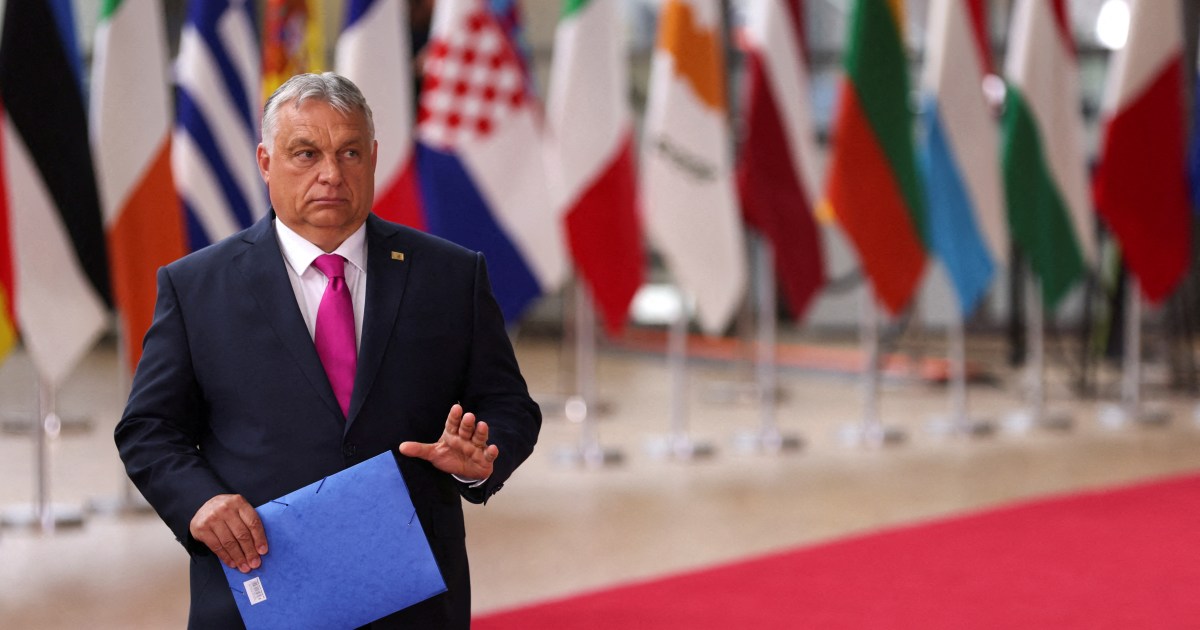Hungary stalls new EU sanctions on Russia: Diplomats
Hungary holds up finalisation of new EU sanctions against Russia over the inclusion of Orthodox Church Patriarch Kirill in the package, according to several diplomats.
Hungary was holding up the finalisation of the European Union’s latest sanctions package against Russia, insisting on the removal of the head of the Russian Orthodox Church Patriarch Kirill from the list of sanctioned individuals, three diplomats have said.
European Union leaders agreed in principle earlier this week on a sixth sanctions package against Russia over its invasion of Ukraine and EU government envoys were to turn that political agreement into a legal text on Wednesday so it can enter into force.
Crucially, the package includes a decision to ban purchases of all seaborne Russian oil and refined products six to eight months from the moment the package become law.
“Agreement is held up because Hungary is objecting to sanctions on Patriarch Kirill,” one EU diplomat said. Two others confirmed this was the situation.
Kirill, 75, is a fervent supporter of Russian President Vladimir Putin and has backed his military campaign in Ukraine. Most EU governments support adding his name to the sanctions list.
Ambassadors were set to hold a fresh round of talks later on Wednesday to try to hammer out the differences, diplomats said.
EU officials have said the sanctions being drawn up will see some 90 percent of Russian oil exports to the EU halted by the end of the year as the bloc tries to halt funds flowing to Moscow’s coffers.
Hungary, which is reliant on Russian oil, won a carve-out for pipeline deliveries after Prime Minister Viktor Orban argued a ban would devastate his country’s economy.
Russia said it was moving to limit the damage from the oil ban as its other key energy export, gas, has also fallen.
“Sanctions will have a negative effect for Europe, us and the whole global energy market,” Kremlin spokesman Dmitry Peskov told reporters.
Peskov added that a “reorientation” was under way to find alternatives for the oil that will no longer be sold to Europe.
“These are purposeful, systematic actions that will allow us to minimise the negative consequences,” he said.
EU countries have scrambled to reduce their dependency on Russian energy but are divided about imposing a natural gas embargo as several member states are heavily reliant on Moscow’s energy supplies.
Economists believe that the worst economic impact of the sanctions is still to come and expect Russia to plunge into a deep recession.
The text under consideration also includes disconnecting Russia’s largest bank Sberbank from the global SWIFT payment system and a ban on insurance for shipping Russian oil to third countries.
The other proposed additions to the blacklist also include military personnel suspected of war crimes in Ukraine.
The weeks-long hold-up over the sixth package of sanctions has rocked EU unity over the Kremlin’s war in Ukraine after the bloc slapped five waves of unprecedented economic punishment on Moscow.




